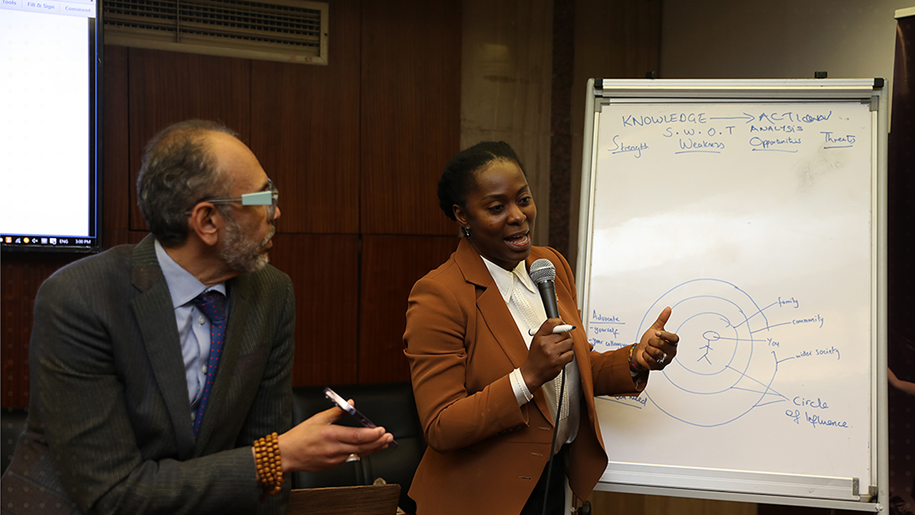Specialist training to combat medicalised FGM/C
Overview
FGM/C is increasingly carried out by some doctors and other healthcare professionals; this is known as medicalisation. More than 16 million women report being mutilated/cut by a medical professional.
Medicalisation gives FGM/C a false sense of legitimacy. Healthcare workers are seen as sources of knowledge and safety, yet their involvement shields the true consequences of FGM/C and reinforces its continued practice.
The College is committed to ending to all forms of FGM/C and has developed a specialist training programme to equip healthcare professionals with the knowledge and skills to recognise the harms of FGM/C for girls and women, understand the legal consequences of practicing FGM/C, and become advocates for eradicating the practice in their local communities.

The training uses lectures, videos and group discussion sessions to explain FGM/C in detail and highlight the devastating physical, emotional and social impact it has on the lives of women and girls. Through the use of case-based discussions and role plays, participants learn how as healthcare professionals they can address attitudes and convince individuals to abandon the practice of FGM/C.
Piloting the programme: Alexandria 2023-24
The training was piloted in Alexandria, Egypt in May 2023. 31 healthcare professionals participated in the pilot, which was facilitated by members of the RCOG, the Faculty of Obstetrics and Gynaecology at the University of Alexandria, and Doctors Against FGM. 97% of participants reported that the training improved their confidence in challenging medicalised FGM/C.
Training impact
Training satisfaction
97% of participants reported that the training improved their confidence in challenging medicalised FGM/C.
Frontline providers
Following the Alexandria pilot, we have continued to roll out the training in Egypt with 105 healthcare professionals attended training in Cairo and Sohag in March 2024.
Programme goals
Our ambition is to scale up training globally and build a network of healthcare providers advocating to eradicate FGM/C in countries where it continues to be prevalent. We will build new partnerships with NGOs to collaborate for even greater impact. Our work will support local trainers to deliver country-specific training and give healthcare providers a global platform to advocate for change as anti-FGM/C champions.
By providing this training in countries with high rates of medicalised FGM/C, we aim to mobilise a large global network of anti-FGM/C champions who have the knowledge and confidence to advocate for the eradication of FGM/C around the world.
Expanding impact and advocacy
Strengthening advocacy
Efforts are underway to enhance the Training of Trainers course, empowering Egyptian to advocate against FGM/C and eliminate its medicalisation.
Expanding global impact
Our goal is to expand training worldwide, building a global network of healthcare providers dedicated to eradicating FGM/C in countries where it remains widespread.
